Laser Tattoo Removal in Singapore
Search and Compare the Best Clinics and Doctors at the Lowest Prices for Laser Tattoo Removal in Singapore
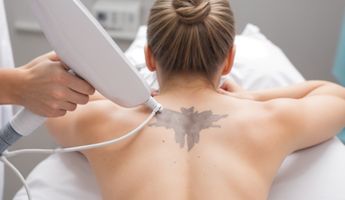
Find the best clinics for Laser Tattoo Removal in Singapore
With Medijump you can browse 65 facilities offering Laser Tattoo Removal procedures in Singapore. The cheapest price available is $106 in Central. And for the cheapest price globally, prices start from $3 in Vietnam.
Laser Tattoo Removal in Central
Price: $ 106
Vietnam offers the best prices Worldwide
Price: $ 3
Medic Surgical and Laser Clinic, can be found in Bishan, Central, Singapore and offers its patients Laser Tattoo Removal procedures as well as 5 other procedures, across 3 different procedure categories. At present, there is no pricing information for Laser Tattoo Removal procedures at Medic Surgical and Laser Clinic. The pricing information is quite specialised, so it's only available on request, and the average price is around $136. The lead specialist at the Clinic will be carrying out all the treatments, and Medic Surgical and Laser Clinic is not accredited by any recognised accreditations institutions.
Dr BC Ng Aesthetics, can be found in Novena, Central, Singapore and offers its patients Laser Tattoo Removal procedures as well as 7 other procedures, across 4 different procedure categories. At present, there is no pricing information for Laser Tattoo Removal procedures at Dr BC Ng Aesthetics. The pricing information is quite specialised, so it's only available on request, and the average price is around $136. Currently, there's no information available about the doctors at the Hospital, and Dr BC Ng Aesthetics is not accredited by any recognised accreditations institutions.
Dr Marcus Wong Thien Chong, can be found in Tanglin, Central, Singapore and offers its patients Laser Tattoo Removal procedures as well as 37 other procedures, across 4 different procedure categories. At present, there is no pricing information for Laser Tattoo Removal procedures at Dr Marcus Wong Thien Chong. The pricing information is quite specialised, so it's only available on request, and the average price is around $136. The lead specialist at the Hospital will be carrying out all the treatments, and Dr Marcus Wong Thien Chong has several accreditations, including: AMS - Academy of Medicine SingaporeFAMS - Fellowship of the Academy of Medicine SingaporeSAPS - Singapore Association of Plastic SurgeonsSMA - Singapore Medical AssociationASPS - American Society of Plastic Surgeons
TattooRemovalSG, can be found in Bishan, Central, Singapore and offers its patients Laser Tattoo Removal procedures as well as 1 other procedures, across 1 different procedure categories. At present, there is no pricing information for Laser Tattoo Removal procedures at TattooRemovalSG. The pricing information is quite specialised, so it's only available on request, and the average price is around $136. Currently, there's no information available about the doctors at the Hospital, and TattooRemovalSG is not accredited by any recognised accreditations institutions.
Prof. Foo Chee Liam - Singapore General Hospital, can be found in Bishan, Central, Singapore and offers its patients Laser Tattoo Removal procedures as well as 20 other procedures, across 3 different procedure categories. At present, there is no pricing information for Laser Tattoo Removal procedures at Prof. Foo Chee Liam - Singapore General Hospital. The pricing information is quite specialised, so it's only available on request, and the average price is around $136. The lead specialist at the Hospital will be carrying out all the treatments, and Prof. Foo Chee Liam - Singapore General Hospital is accredited by just one known accreditations institute, SAPS - Singapore Association of Plastic Surgeons
- Home
- Singapore
Compare Before & After Photos of _procedure_photos.phpLaser Tattoo Removal
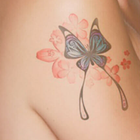

Front view
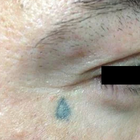
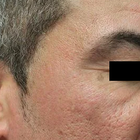
Half-side view
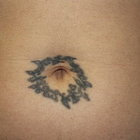
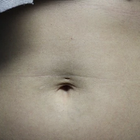
Front view
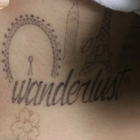
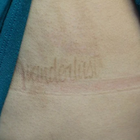
Front view
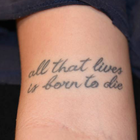
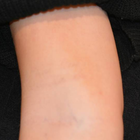
Front view
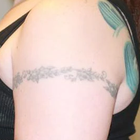
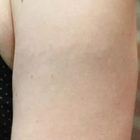
Full-side view
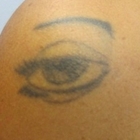
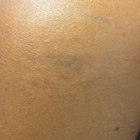
Front view
WHY US?
At Medijump, we're making medical easy. You can search, compare, discuss, and book your medical all in one place. We open the door to the best medical providers worldwide, saving you time and energy along the way, and it's all for FREE, no hidden fees, and no price markups guaranteed. So what are you waiting for?

Free

Best Price

Widest Selection

Risk-Free
What you need to know about Laser Tattoo Removal in Singapore
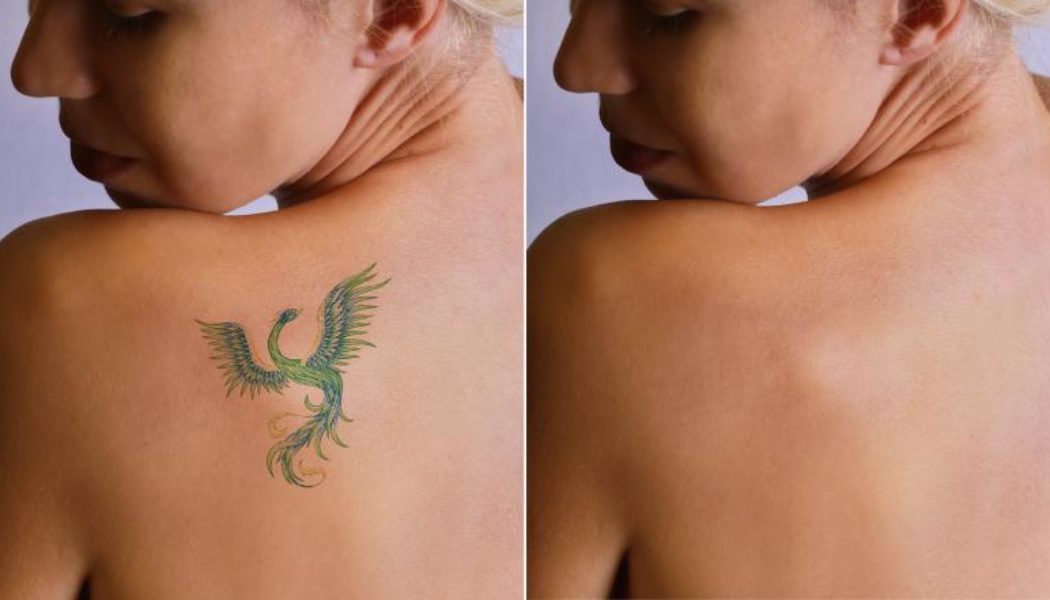
Laser tattoo removal is a technique to eliminate an unwanted tattoo with little to no side effects. It works by breaking up the pigment colors with a high-intensity light beam. You can undergo a laser tattoo removal if you regret having a tattoo, unhappy with the appearance of your tattoo, the tattoo causes infection, or you have an allergic reaction to the tattoo. Once you've done laser tattoo removal, your unwanted tattoo will be gone forever.
Grasping the notion that Laser Tattoo Removal is not a one-off activity, but instead encompasses an array of treatments distributed over multiple weeks, is crucial. Variables like the dimensions, hue, tattoo positioning, along with the person's general well-being determine the count of requisite sessions.
What is the cost of Laser Tattoo Removal in Singapore?
In Singapore, the Laser Tattoo Removal cost can greatly fluctuate. It hinges upon several considerations such as the size, emplacement, tattoo color, and the amount of needed therapy sessions. Other influencing factors are the laser technology utilized and the reputation of the clinic.
The majority of clinics in Singapore extend payment schemes and financing aids to render the process more financially manageable. Bear in mind, though, that Laser Tattoo Removal isn't typically included in medical insurance coverage as it's deemed a beauty-related procedure. Irrespective of the expenditure, it is vital to give precedence to first-rate care and the proficiency of the healthcare staff over cost-effectiveness.
What does a Laser Tattoo Removal Procedure Involve?
The process of Laser Tattoo Removal entails directing particular wavelengths of laser light on the tattooed part of the skin. A highly specialized laser is chosen depending on the colors present in the tattoo for carrying out this technique. The light pulses penetrate the skin's topmost layers to reach the tattoo's pigment. This energy from the light leads to the fragmentation of the tattoo ink into minute particles, which are gradually flushed out by the body's immunity system.
Most people do not need anesthesia, but you can ask for a topical or local anesthetic from your doctor. During the procedure, you will have to wear protective eye shields. Then, your doctor or technician uses a laser to bring pulses of intense light to the top layers of your skin and only the tattoo pigment will absorb this light. Depending on the size, color(s), and age of your tattoo, you might need more than one treatment session.
How Long Should You Stay in Singapore?
You can leave Singapore after your tattoo removal procedure. However, it may take several treatments to completely remove the tattoo. Given that everyone reacts distinctively, the process might necessitate anywhere from 3 to 10 visits. The interval between each treatment is around 7 weeks to allow the treated area enough time to heal. You are free to retreat to your home, or a place of your choosing, in between these sessions. This sequence persists until your tattoo is completely removed. Nevertheless, it is critical to resume your journey to Singapore for each forthcoming Laser Tattoo Removal.
What's the Recovery Time Like?
You will feel pain and discomfort for around a week, but your skin will completely heal in around six weeks. You should be able to go to work as long as you do not feel any pain or discomfort that interferes with your life.
Right after every session, you may observe minor swelling and a reddish tint on the manipulated area. These indications normally wane within a short span that can range from a few hours to two days and can be tamed with chilled packs and popularly accessible pain relievers. Evading exposure to sunlight and demanding activities in the initial few days is of utmost importance to forestall probative issues.
What sort of Aftercare is Required for Laser Tattoo Removal Procedures in Singapore?
Your doctor will give you aftercare instructions; make sure to follow the instructions. Keep the treated area clean, do not soak the area, and try to avoid popping blisters. If the treated area itches, apply hydrocortisone cream. Avoid smoking as it can reduce the effectiveness of laser tattoo removal by around 70%.
The treated region should also be protected from the sun and covered with a high SPF sunscreen because the skin will be more susceptible to UV deterioration. Additionally, avoiding activities that could result in significant sweating or close contact with the area of the skin that is receiving treatment is advised. You must avoid the impulse to pick or scratch at the treated area if you want the skin to heal properly. Finally, maintaining effective healing and general health requires drinking plenty of water and eating a diet that is nutritionally balanced.
What's the Success Rate of Laser Tattoo Removal Procedures in Singapore?
Laser tattoo removal is the most effective tattoo removal treatment with a success rate of over 95%. It's important to understand that when discussing tattoo removal, the term "effectiveness" typically refers to the degree of tattoo fading rather than complete tattoo removal. The depth, type, and concentration of the ink, the tattoo's colour, as well as the recipient's skin features and overall health, can all have an impact on the final design.
Are there Alternatives to Laser Tattoo Removal Procedures in Singapore?
Laser Tattoo Removal has evolved into a highly effective strategy for eliminating tattoos, but you're afforded various other alternatives if Laser Tattoo Removal does not align with your requirements. Intense pulsed light (IPL) therapy, for instance, where light pulses are deployed to dissolve the tattoo ink, could be a viable proposition particularly for larger tattoos. However, for heavily inked or deeper tattoo locations, IPL might not yield the desired outcome.
Dermabrasion is yet another alternative. It's a process that employs skin 'sanding' to eliminate the surface and middle skin layers. Compared to laser treatments, dermabrasion can be less comfortable and requires a more prolonged healing duration. In certain instances, it might also be viable to surgically remove the tattoo with a scalpel, but be prepared for the potential of scarring. Therefore, when deciding on the best course of action, it's important to discuss your unique requirements and expectations with a specialist.
What Should You Expect Before and After the Procedure
Before the Laser Tattoo Removal, there will be a discussion with the expert regarding your health history, the treatment information, and your anticipated outcomes. The area on which the tattoo is located must be hygienic and devoid of any ongoing skin issues. A topical anesthesia may be applied during the session for your comfort. The feeling you might experience when the laser is used could be likened to the feeling of a rubber band being flicked against your skin.
Post-treatment, the tattooed section may look inflamed and red, and it could feel a bit warm to the touch and tender. These symptoms should diminish over a few days. It is vital that you adhere to the follow-up care guidelines given by the clinic to ensure the best healing process and outcome. Generally, this requires cleanliness of the area, avoiding direct sun, and abstaining from activities that can irritate the skin. Regular check-ups of your healing process with your expert can assist with timely detection and management of any potential post-treatment issues.
What are Potential Risks of Laser Tattoo Removal?
Laser Tattoo Removal carries some side effects and risks, such as:
- Infection
- Hypopigmentation and hyperpigmentation (treated skin becomes significantly darker or lighter than its surroundings)
- Scarring, bleeding, swelling, and blisters
It's important that you get proper treatment by a reputable doctor to avoid these side effects and risks.
Whilst the information presented here has been accurately sourced and verified by a medical professional for its accuracy, it is still advised to consult with your doctor before pursuing a medical treatment at one of the listed medical providers
No Time?
Tell us what you're looking for and we'll reachout to the top clinics all at once
Enquire Now

Popular Procedures in Singapore
Prices Start From $28

Prices Start From $6,002

Prices Start From $278

Recommended Medical Centers in Singapore for Laser Tattoo Removal

- Interpreter services
- Translation service
- Religious facilities
- Medical records transfer
- Medical travel insurance
- Health insurance coordination
- TV in the room
- Safe in the room
- Phone in the room
- Private rooms for patients available

- Interpreter services
- Translation service
- Religious facilities
- Medical records transfer
- Medical travel insurance
- Health insurance coordination
- TV in the room
- Safe in the room
- Phone in the room
- Private rooms for patients available

- Interpreter services
- Translation service
- Religious facilities
- Medical records transfer
- Medical travel insurance
- Health insurance coordination
- TV in the room
- Safe in the room
- Phone in the room
- Private rooms for patients available

- Interpreter services
- Translation service
- Religious facilities
- Medical records transfer
- Medical travel insurance
- Health insurance coordination
- TV in the room
- Safe in the room
- Phone in the room
- Private rooms for patients available

- Interpreter services
- Translation service
- Religious facilities
- Medical records transfer
- Medical travel insurance
- Health insurance coordination
- TV in the room
- Safe in the room
- Phone in the room
- Private rooms for patients available

- Interpreter services
- Translation service
- Religious facilities
- Medical records transfer
- Medical travel insurance
- Health insurance coordination
- TV in the room
- Safe in the room
- Phone in the room
- Private rooms for patients available

- Interpreter services
- Translation service
- Religious facilities
- Medical records transfer
- Medical travel insurance
- Health insurance coordination
- TV in the room
- Safe in the room
- Phone in the room
- Private rooms for patients available

- Interpreter services
- Translation service
- Religious facilities
- Medical records transfer
- Medical travel insurance
- Health insurance coordination
- TV in the room
- Safe in the room
- Phone in the room
- Private rooms for patients available

- Interpreter services
- Translation service
- Religious facilities
- Medical records transfer
- Medical travel insurance
- Health insurance coordination
- TV in the room
- Safe in the room
- Phone in the room
- Private rooms for patients available

- Interpreter services
- Translation service
- Religious facilities
- Medical records transfer
- Medical travel insurance
- Health insurance coordination
- TV in the room
- Safe in the room
- Phone in the room
- Private rooms for patients available
Laser Tattoo Removal in and around Singapore
About Singapore
Singapore is a small, yet beautiful island city-state in South East Asia. The country's growth and prosperity in terms of infrastructure and economy are astounding and Singapore is affluent and tax-friendly and its GDP is on par with developed European nations.
Singapore is a global center for education, technology, tourism, trade, logistics, and healthcare. Medical expenses in Singapore are expensive when compared to Thailand and India. Yet, the country attracts medical tourists with its cleanliness, world-class medical infrastructure, and facilities. A C-section will cost anywhere between $6,048 and $11,267 in Singapore. Hip replacements can cost around $8,550-$12,850 and breast lump removal will cost you $5,459-$10,700 including a private room.
The country has 15 JCI accredited hospitals and medical centers, which offer a variety of services from orthopedics, dermatology, dental, cardiology, ophthalmology, and cosmetic procedures to alternative therapies such as acupuncture and Ayurveda. English-speaking medical professionals are extremely skilled and experienced. The hospitals in Singapore have access to cutting edge technologies and it is the best country to treat life-threatening, complex conditions.
It is advisable for medical tourists to have an International Health Insurance Plan to cover surgical costs. Most of the reputed hospitals in Singapore will only admit foreign patients with health insurance.
Medical care in Singapore is not just about getting preventive care and treatments for medical conditions that one may have. Some of the health care centers in Singapore are super luxurious and you can even order your food and shop using wireless tablets provided and make use of the nearby spas. Popular Hospitals and Clinics are the Farrer Park Hospital, Gleneagles Hospital Singapore, Mount Elizabeth Hospital, Parkway East Hospital, and Thomson Medical Centre.
Popular parts of Singapore
Singapore is home to over 5.5 million people and its cultural diversity is displayed in the extensive ethnic cuisine and major festivals. Singapore ranks number ten in the world for skyscrapers.
- Sentosa: Each of Sentosa’s three beaches: Siloso, Palawan, and Tanjong—hold their own unique charms. Palawan beach’s islets and playgrounds are great spaces for families to unwind. Resorts World Sentosa is home to several amazing experiences. Take a movie-themed ride at Universal Studios Singapore, or immerse yourself in aquatic adventures at the S.E.A. Aquarium.
- Marina Bay: If you wish to explore the extravagant side of Singapore, visit the stunning, Marina Bay. The Nightlife is amazing with glittering lights, glitzy rooftop bars, and restaurants. Marina Bay is the central and the busiest district of Singapore.
- Chinatown: You can experience an impressive blend of traditional and modern Singapore in Chinatown. There are ornate Chinese, Buddhist and Hindu temples, museums and plenty of opportunities to soak up the busy streets which are full of old shophouses. It is the perfect location for traditional cuisine and you will be spoilt for choice.
- Orchard: The 2 km long Orchard Road is a shopper’s paradise as you will find large shopping malls and designer’s stores. Singapore’s only UNESCO World Heritage site, the Botanical Garden lies at the corner of Orchard Road.
- Joo Chiat: This neighborhood is more residential and you will find an amazing range of housing options.
- Little India: is the center of the Indian community within Singapore and is filled with multicolored shop-houses that line the streets, and various mosques and temples, and enjoy the aromas that infuse the night air when the demand for food is at its peak.
Weather and Climate in Singapore
Singapore lies close to the equator in the Southern Hemisphere. The island country has a tropical climate. It is hot and humid throughout the year which has led to a steady inflow of tourists all year round.
Singapore receives an annual rainfall of 2430 mm. An average of 167 days receives moderate to heavy rainfall. Two different monsoons: Northeast (December to March) and Southwest monsoon (May to September) accounts for the rainfall. Thunderstorms are quite common during the Southwest monsoon.
The average temperature is 31°C during the day. It is most likely that the temperature can drop to 19°C during the hours of darkness.
Getting around in Singapore
Rated as the world's best airport by Skytrax, Singapore Changi Airport is one of the busiest airports in the World. The airport serves around 100 airlines, flying to 400 cities across 100 countries. You can hire a taxi or use the MRT to reach downtown Singapore.
The transport system is efficient due to the systematic and comprehensive network of roadways. The Land Transport Authority controls private vehicles and minimizes traffic congestion. Some of the common forms of transportation are:
- Mass Rapid Transit (MRT): The MRT has a total of five lines. You can buy a Singapore Tourist Pass or EZ Link card which allows you to use the railways any number of times for two or three days. A single journey costs 0.58 USD and a train arrives every 2-3 minutes during the peak hours.
- Public buses: There are over 300 public buses to serve the locals and tourists and bus fares range from 0.58 USD to 2.07 USD.
- Taxis: are widespread in Singapore and are less expensive and metered. It can cost you 2.63 USD per km.
- Water taxis: Will take you across the beautiful River Singapore. You can visit a few tourist spots via water taxis and view the downtown from a different angle. A single journey will cost 5 USD.
Tourist Visa in Singapore
Citizens of India, China and Russia require a valid tourist visa to enter the territory of Singapore. The visa processing time is just 5 days and it is valid for 90 days from the date of issue. You are allowed to stay here for a maximum of 30 days.
People from the European Union, US, Norway, South Korea, Australia, and New Zealand can enter and stay for 90 days in Singapore visa-free.
Additional Information
- Singapore dollar (S$) is the official currency of Singapore. 1 USD is equivalent to 1.36 Singapore dollars.
- You can find ATMs close to banks, shopping malls and almost every tourist location. You can also pay by using credit and debit cards.
- Malay is the national language of Singapore. Mandarin, English, Malay, and Tamil are the four other official languages of the country. So, almost all the locals are fluent in English.
- Singapore is home to 10 religions. 33% of the total population practice Buddhism, followed by Christianity and Islam.
- New Year's Eve, Chinese New Year, Labour’s day, Good Friday, Deepavali, Vesak day, Hari Raya Puasa and Christmas are some of the public holidays in Singapore.
Popular Searches
- Plastic Surgery in Thailand
- Dental Implants in Thailand
- Hair Transplant in Thailand
- Breast Augmentation Thailand
- Gastric Sleeve in Thailand
- Gender Reassignment Surgery in Thailand
- Laser Hair Removal in Bangkok
- Botox in Bangkok
- Dermatology in Bangkok
- Breast Augmentation in Bangkok
- Coolsculpting in Bangkok
- Veneers in Turkey
- Hair Transplant in Turkey
- Rhinoplasty in Turkey
- Stem Cell Therapy in Mexico
- Rhinoplasty in Mexico
- Liposuction in Mexico
- Coolsculpting in Tijuana
- Rhinoplasty in Korea
- Scar Removal in Korea
- Gastric Sleeve in Turkey
- Bone Marrow Transplant in India
- Invisalign in Malaysia
- Plastic Surgery in the Dominican Republic
- Tummy Tuck in the Dominican Republic
- Plastic and Cosmetic Surgery in Poland
- Rhinoplasty in Poland
- Hair Implant in Poland
- Dental Implants in Poland
- IVF in Turkey


